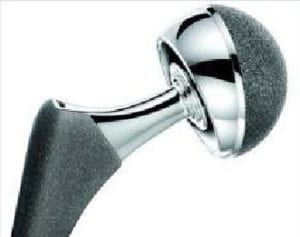DePuy Seeks to Throw Out Hip Patient Defective Product Lawsuit
Johnson & Johnson (J&J) is fighting a patient lawsuit and seeking to have it dismissed on the grounds that the company did warn patients of the potential for metal erosion and the need for revision surgery.
This California case was filed by plaintiff Loren Kransky in December 2010, just after J&J subsidiary, DePuy, voluntarily recalled its ASR hip prosthesis and resurfacing devices.
J&J’s summary judgment seeks to have the case thrown out of court because as Mass Device reports from court documents, “There is no evidence that Mr. Kransky’s ASR XL hip implant was negligently manufactured.”
The company says that there were instructions that came with the ASR XL hip that warned of the risk of metal ions being released into the patient.
Mr. Kransky’s lawsuit accused DePuy of aggressively marketing the ASR XL hip even after data showed high revision rates among patients. The company assured patients the device was safe and effective even though it was failing well in advance of its promised 15-year life span.
Kransky said if DePuy had recalled the hip device when it began receiving complaints, he would not have received the implant and not have suffered debilitating pain, immobility, inflammation, infection and the need for revision surgery.
The plaintiff filed a strict liability manufacturing defect, negligent recall, negligent manufacture, strict liability failure to warn and negligent failure to warn case against J&J. His trial was set to begin in January 2013.
 The ASR is a metal-on-metal hip made up of chromium or cobalt. Metal ions can result when the socket and ball rub against each other. These microscopic metal particles destroy muscle and tissue causing infection and necrosis or tissue death, which ultimately loosens the hip. It then must be revised or replaced. High levels of metal ions can also lead to cardiac and neurological problems.
The ASR is a metal-on-metal hip made up of chromium or cobalt. Metal ions can result when the socket and ball rub against each other. These microscopic metal particles destroy muscle and tissue causing infection and necrosis or tissue death, which ultimately loosens the hip. It then must be revised or replaced. High levels of metal ions can also lead to cardiac and neurological problems.
The ASR system was approved by the 510(k) process within the FDA, which is largely a hands-off regulatory process relying on the honesty of the device maker, in this case, Johnson & Johnson. An Institute of Medicine report last year said the 510(k) fast-track approval process was “fatally flawed” and should be done away with.
The ASR Hip Resurfacing System and the ASR XL Acetabular System were eventually recalled on August 24, 2010 affecting more than 96,000 patients.
As of November 1 there were nearly 6,000 product liability lawsuits filed against DePuy and consolidated in multidistrict litigation in the Northern District of Ohio.
Searcy Denny knows of other metal-on-metal hip prosthesis that remain on the market even though we are hearing of similar complaints. Biomet’s M2A Magnum MoM hips remain on the market even as lawsuits against the maker have been consolidated in a federal court in Indiana.
It’s estimated about 500,000 patients have received MoM hips. The FDA has received about 7,500 complaints about the A.S.R. which does not include patients from other countries.
Share This


